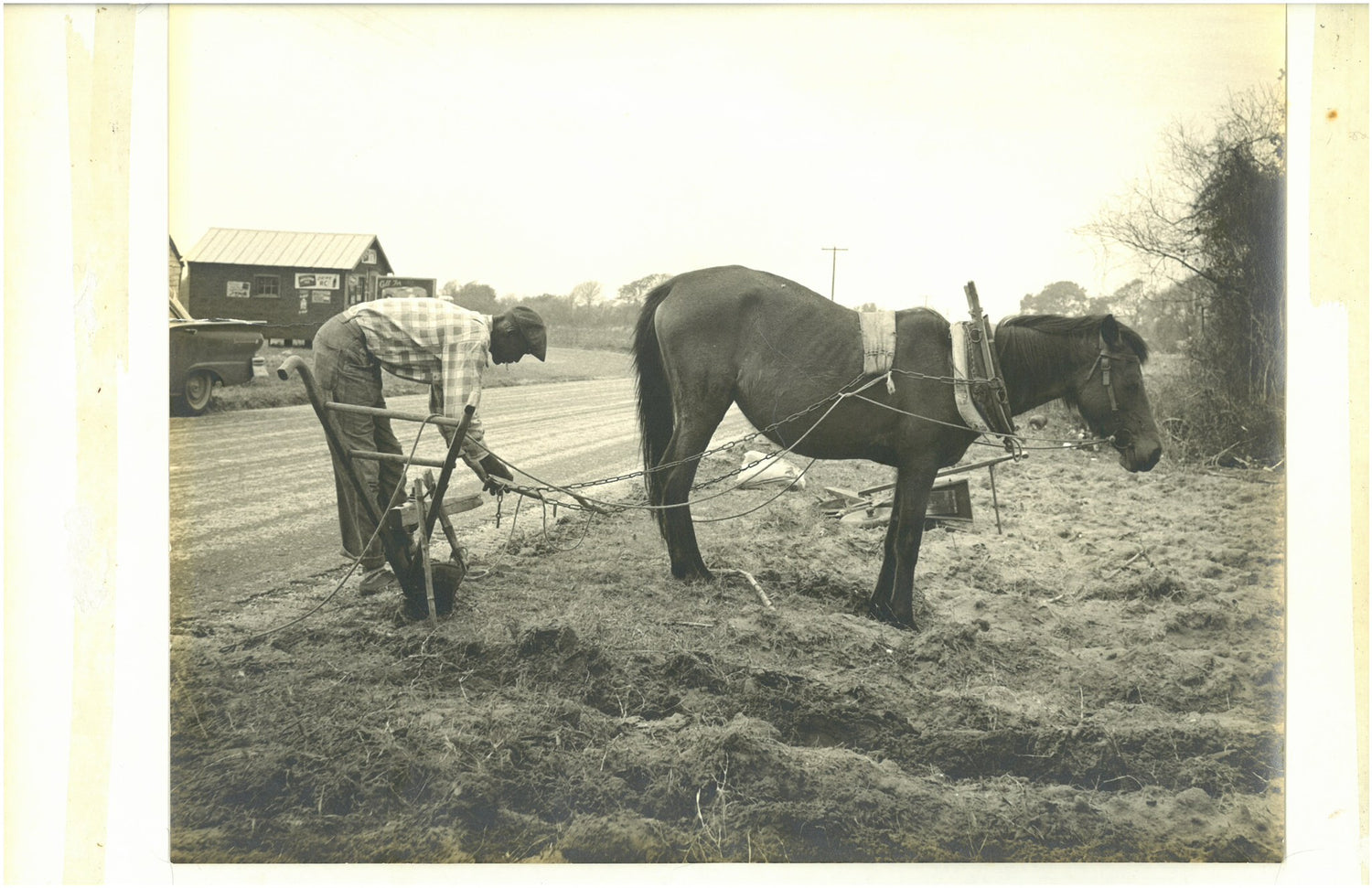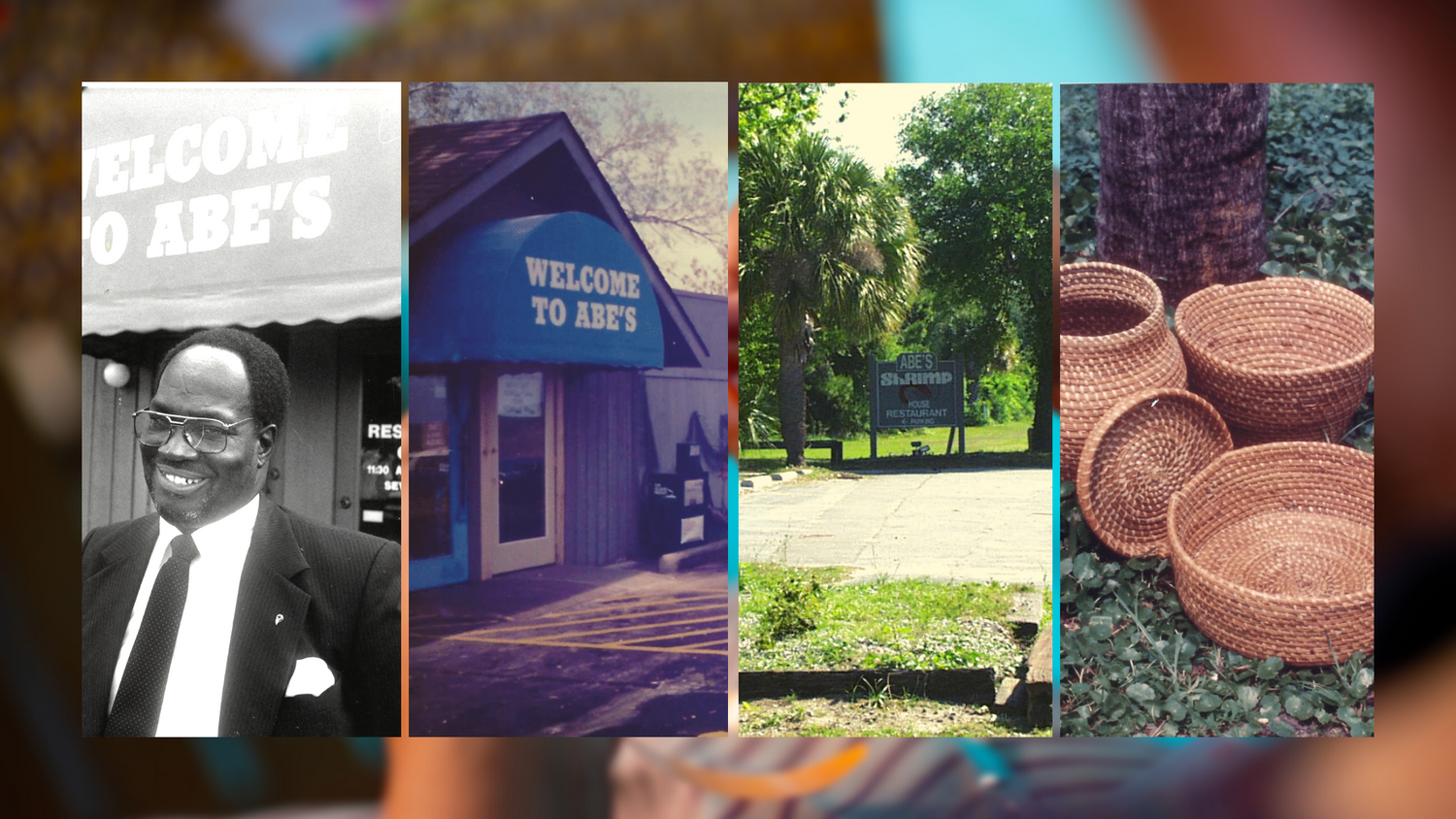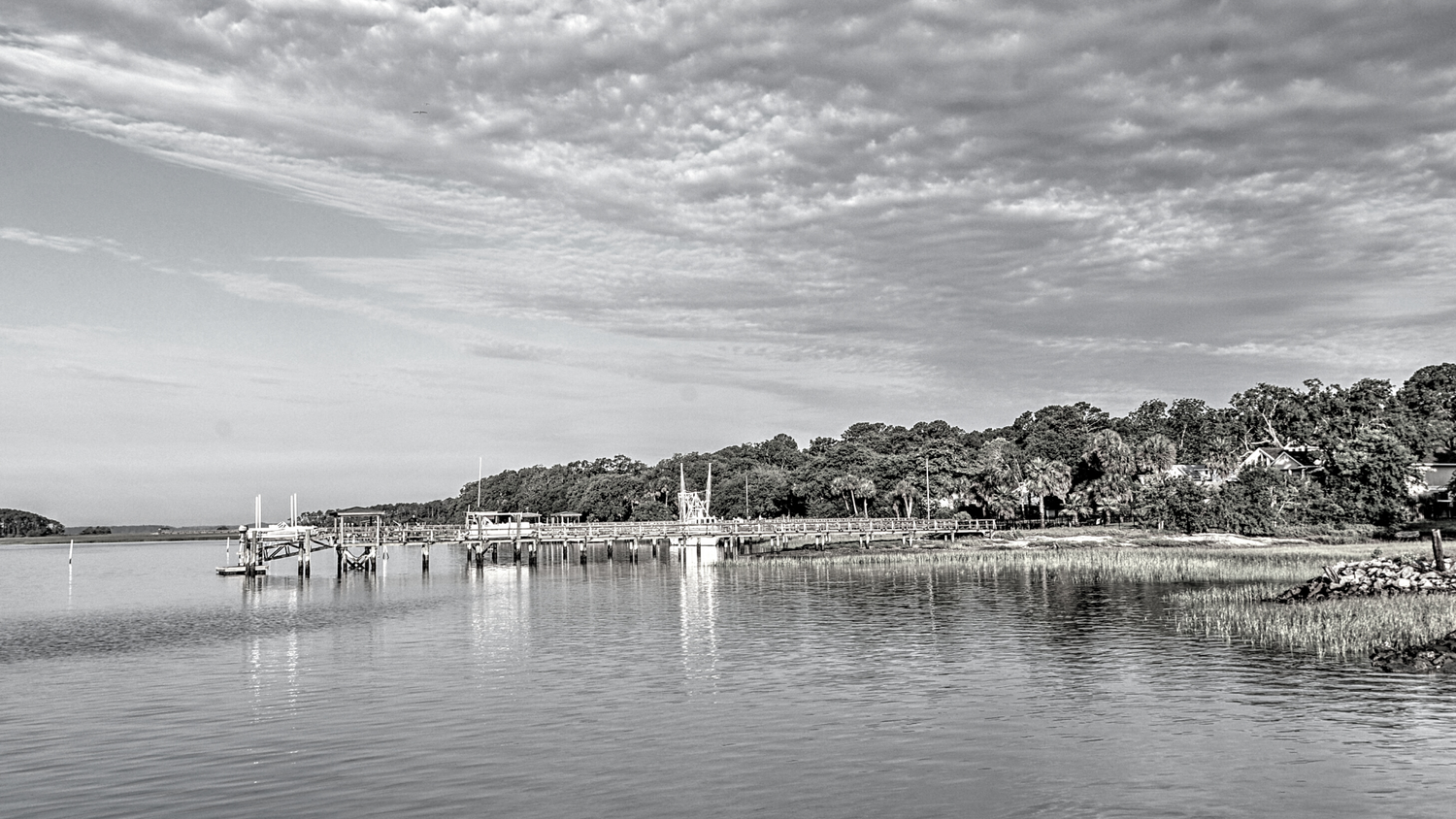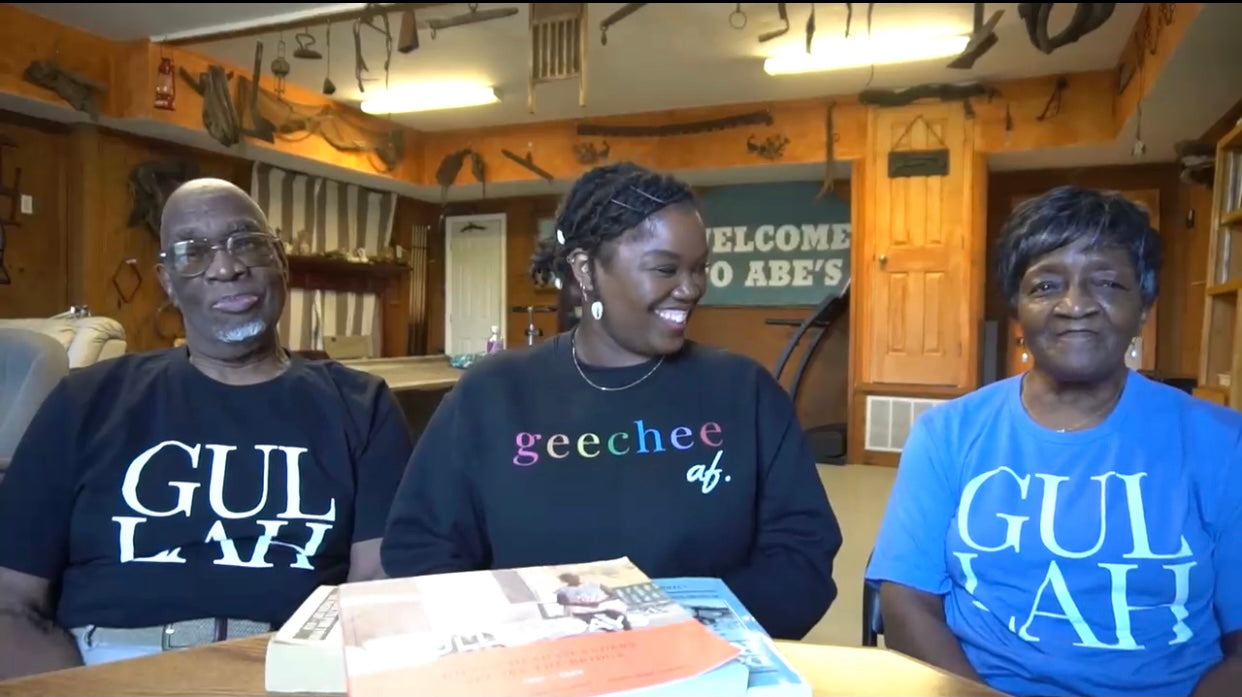HISTORY & LEGACY
(Quote from “Gullah Days” by Thomas C. Barnwell, Emory Shaw Campbell and Dr. Carolyn Grant)
When he was young, Abe helped his Aunt Beaulah and her husband on their farm, but farming wasn’t his favorite task. He admired the Gullah men in his community who owned community stores and desired to open one himself. He convinced his aunt to apply for a business permit on his behalf and at sixteen years old he became one of Hilton Head Island’s youngest store owners. At the same time that Abe was working his small store, workers were building a bridge to connect Hilton Head Island to the mainland. The bridge opened in 1956. That year Abe left his store in his aunt’s hands. He made his way to Savannah and boarded a shrimp boat bound for Key West, Florida, with his father, James C. Frazier, known to be one of the most skilled shrimpers between Hilton Head Island and Florida.He took Abe under his wing to teach him this skill that many Gullah men had mastered to support their families. Shrimping didn’t work out well for Abe, so he found work in a Miami restaurant. There he learned the tricks and trades of what would become his future business.
When his aunt’s health started to decline in 1961, Abe returned to Hilton Head Island and got back to running his business. Upon his return, another young man who had migrated from Hampton County to Hilton Head Island introduced Abe to his sister, Charliemae. The two married and began to grow a business enterprise that included Abe’s Grocery Store and Driftwood Lounge, Abe’s Motel and Rentals, and Abe’s Restaurant, later renamed Abe’s Native Shrimp House. Abe’s would become famous worldwide for serving unique Gullah dishes that both my parents enjoyed as they grew up. Food was part of the Gullah tradition, as native islanders grew or caught almost everything they ate. Both of my uncles, James Grant,Sr.,and Solomon Grant, Sr., both farmed their small acres of land and taught their children how to grow and harvest crops. My siblings and I often helped in the fields picking tomatoes, beans, corn, and other crop that would be sold at their small roadside stands. Sometimes we would join our cousins to sell fruits and vegetables to people who had moved to the island or were visiting.
Rather than surviving off of farming and shrimping, Abe found another way to incorporate what he learned from these Gullah traditions—preparing Gullah dishes. Visitors and workers arriving on the island were in search of places to enjoy meals and drinks. They would find their way to Abe’s for hot sandwiches, fried fish and chicken, shrimp, oysters, crab, lima beans with smoked necked bones, collard greens, gumbo, cornbread, and more. In the mid-1970s, Abe's became a full-service restaurant, and the menu expanded to serve dishes he grew up on. A Charleston writer noted that Abe’s, he believed, was the first restaurant to serve shrimp and grits: “Cruising past the marinas, condos, and hotels, I float back to the 1960s, when my college roommate drove us out from Savannah to Hilton Head for a night of beer drinking and live music at Abe’s Driftwood Lounge. A ramshackle roadhouse and pool hall, it was run by Abe Grant, an African American entrepreneur who later opened Abe’s Shrimp House—like the Driftwood, long gone—which was possibly the first restaurant in America to offer the now ubiquitous dish of shrimp-and-grits.”18That dish, along with others, became specialty Gullah meals that we served through thehistoryof the restaurant. My siblings and I learned our work ethics and Gullah cooking by working alongside our parents in their businesses.
(Quote from “Gullah Days” by Thomas C. Barnwell, Emory Shaw Campbell and Dr. Carolyn Grant)
Gullah T’s N’ Tings opened for business on Etsy on June 2, 2020. This “Culture Collection” is designed and owned by Hilton Head Island native and 5th generation Gullah gal, Sonya Jovan Grant. With “Nothing is for nothing” as her life’s motto, she started her business in the middle of the pandemic. Her goal was to find new, fresh and aesthetically appealing ways to redefine the culture for the younger generations as well as intriguing the elders of the Gullah community. Sonya is the granddaughter of Abe and Charliemae Grant Sr., retired business owners of Abe’s Native Shrimp House, one of Hilton Head Island’s first ever restaurants. “I feel as though God has called me to continue thelegacystarted by my grandparents and the generations before them, in keeping our culture rich and admirable. Telling the stories of the elders and educating the world through my designs.” Her line includes t-shirts, mugs/tumblers, bags and other apparel and accessories




